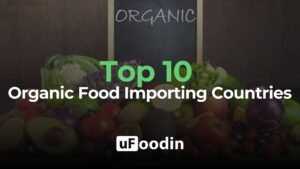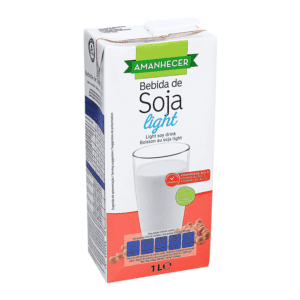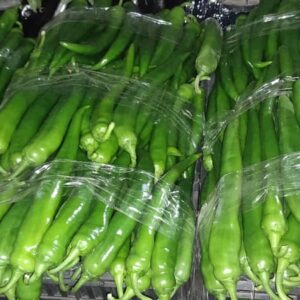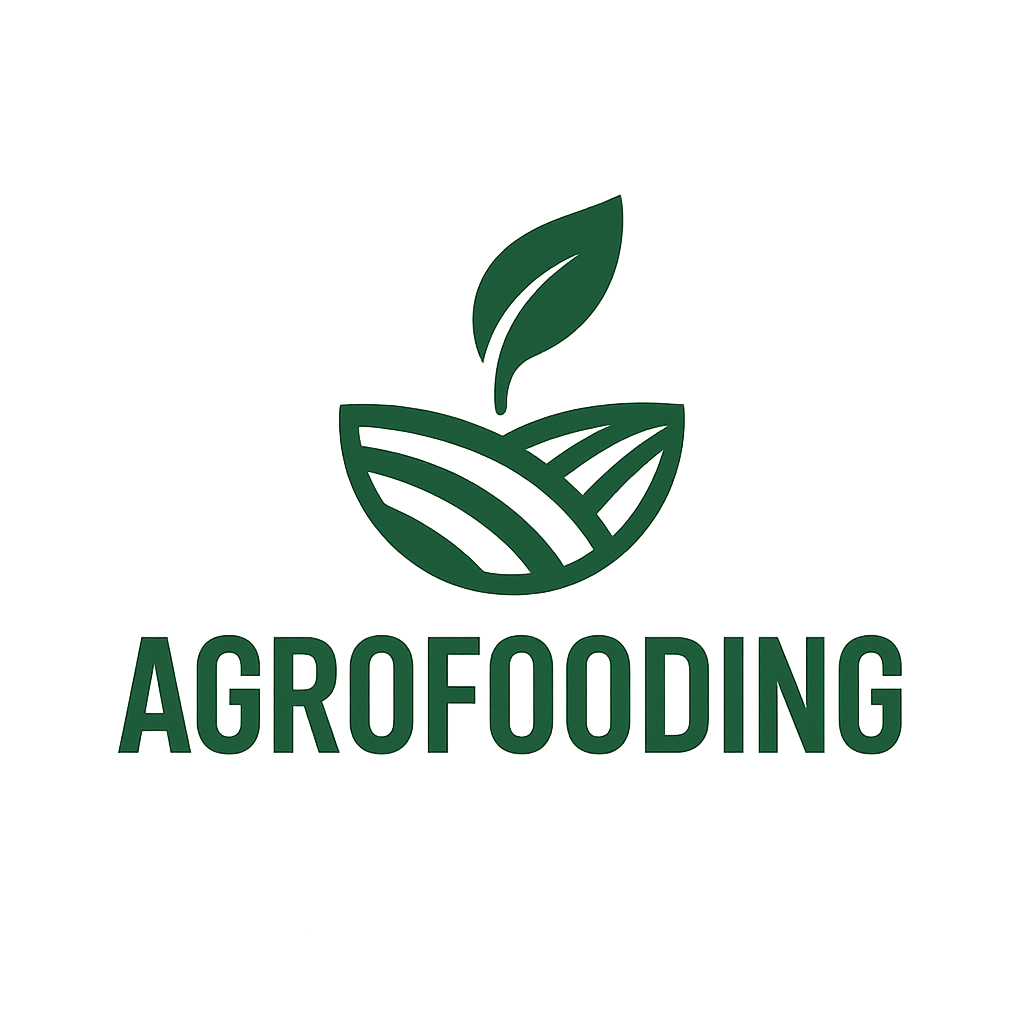
Top 10 Organic Food Companies: Leaders in Sustainable Nutrition
The organic food industry has evolved from a niche market to a global powerhouse, driven by rising consumer awareness about health, sustainability, and environmental impact. In 2023, the global organic food market was valued at approximately $227 billion, with expectations to reach $366 billion by 2030, growing at a CAGR of 6.9%. This growth is fueled by the increasing demand for clean-label products, free from synthetic chemicals, and responsibly sourced ingredients.
North America and Europe dominate the market, contributing over 65% of global organic food sales, largely due to well-established certification systems and consumer demand for premium products. Meanwhile, the Asia-Pacific region is emerging as a key growth driver, with countries like China and India witnessing rapid expansion in organic farming and product availability.
This article explores the Top 10 Organic Food Companies, their contributions to the market, and the key trends and challenges shaping the future of the organic food industry.

- Whole Foods Market
- Headquarters: Austin, Texas, USA
- Why It Stands Out: Known as the pioneer of organic retail, Whole Foods offers a wide array of certified organic products, from fresh produce to packaged goods.
- Key Innovations: Focus on sustainability with zero-waste initiatives and partnerships with local organic farmers.
- Danone North America
- Headquarters: White Plains, New York, USA
- Why It Stands Out: Danone’s organic portfolio, including Horizon Organic and Earthbound Farm, caters to diverse consumer needs in the dairy and produce segments.
- Key Innovations: Introduction of regenerative organic farming practices to improve soil health and reduce emissions.
- The Hain Celestial Group
- Headquarters: Lake Success, New York, USA
- Why It Stands Out: A leader in organic snacks, beverages, and personal care products, with brands like Earth’s Best and Celestial Seasonings.
- Key Innovations: Expansion into plant-based and gluten-free organic offerings.
- Nature’s Path Foods
- Headquarters: Richmond, British Columbia, Canada
- Why It Stands Out: Renowned for its organic cereals and snacks, Nature’s Path emphasizes sustainability and eco-friendly packaging.
- Key Innovations: Development of carbon-neutral products and investment in regenerative agriculture.
- Amy’s Kitchen
- Headquarters: Petaluma, California, USA
- Why It Stands Out: Amy’s Kitchen specializes in organic ready meals and soups, catering to the growing demand for convenience without compromising quality.
- Key Innovations: Adoption of renewable energy across manufacturing facilities.
- Clif Bar & Company
- Headquarters: Emeryville, California, USA
- Why It Stands Out: A leader in organic energy bars and snacks, Clif Bar focuses on performance nutrition and sustainability.
- Key Innovations: Commitment to organic farming and transitioning to 100% renewable energy operations.
- Organic Valley
- Headquarters: La Farge, Wisconsin, USA
- Why It Stands Out: As a farmer-owned cooperative, Organic Valley leads in organic dairy, eggs, and meat, emphasizing fair trade practices.
- Key Innovations: Introduction of carbon-positive dairy products through innovative farming techniques.
- Stonyfield Organic
- Headquarters: Londonderry, New Hampshire, USA
- Why It Stands Out: Stonyfield is a leading brand in organic yogurt and dairy, known for its commitment to sustainability and quality.
- Key Innovations: Investment in soil health programs and reduction of plastic usage in packaging.
- Green & Black’s
- Headquarters: London, United Kingdom
- Why It Stands Out: Known for premium organic chocolate, Green & Black’s combines ethical sourcing with high-quality ingredients.
- Key Innovations: Focus on fair trade-certified cocoa and sustainable farming practices.
- Eden Foods
- Headquarters: Clinton, Michigan, USA
- Why It Stands Out: A pioneer in organic foods, Eden Foods offers a diverse range of products, including beans, grains, and pasta.
- Key Innovations: Commitment to BPA-free cans and long-term contracts with organic farmers to ensure fair trade.
Major Trends in the Organic Food Industry
- Growth in Organic Dairy and Meat Products
Organic dairy and meat are seeing strong growth, driven by consumer demand for ethically produced, hormone-free, and grass-fed options. - Expansion of Plant-Based Organic Foods
Plant-based organic products, such as almond milk and tofu, are growing at a rapid CAGR of 10.8%, catering to health-conscious and environmentally aware consumers. - E-Commerce Growth for Organic Products
The online organic food market is expanding at a CAGR of 8.2%, offering convenience and broader access to niche organic products. - Innovation in Functional Organic Foods
Products enriched with probiotics, vitamins, and other functional ingredients are gaining traction, aligning with wellness trends. - Focus on Regenerative Agriculture
Companies are increasingly adopting regenerative practices to enhance soil health, biodiversity, and carbon sequestration, positioning it as the next phase of organic farming. - Government Policies Supporting Organic Farming
Subsidies, tax breaks, and national strategies to promote organic agriculture are bolstering growth, particularly in the EU and North America.

Main Challenges in the Organic Food Industry
- High Production Costs
Organic farming is labor-intensive and resource-demanding, raising costs and limiting affordability for price-sensitive consumers. - Complex Certification Processes
The lack of standardization in organic certifications globally adds complexity and cost for producers aiming to export their products. - Supply Chain Integrity Issues
Ensuring authenticity and preventing fraud in organic labeling remains a significant hurdle in long and fragmented supply chains. - Limited Organic Farmland
With less than 2% of global farmland certified organic, scaling production to meet demand remains challenging. - Consumer Price Sensitivity
The premium price of organic foods restricts accessibility, especially in developing markets where affordability is a concern. - Impact of Climate Change
Unpredictable weather patterns, droughts, and pest infestations pose significant risks to organic crop yields, threatening supply stability.
The Top 10 Organic Food Companies are at the forefront of a rapidly growing industry that aligns consumer health and environmental sustainability. From Whole Foods’ zero-waste initiatives to Stonyfield’s investment in soil health, these companies are setting the standard for organic production and innovation.
Platforms like uFoodin play a crucial role in supporting organic food producers by offering visibility, connecting them with global buyers, and facilitating partnerships that drive innovation and growth. Smaller producers can leverage uFoodin to access premium markets and showcase their unique products, while established brands can optimize their global presence and navigate complex supply chains.
Addressing the challenges of cost, certification, and supply chain integrity requires a collective effort from producers, governments, and industry stakeholders. By embracing technology, adopting regenerative practices, and fostering transparency, the organic food industry can overcome these barriers and continue its impressive growth trajectory.
The future of organic food lies at the intersection of sustainability and consumer-driven innovation—a future where platforms like uFoodin are indispensable partners in shaping a healthier, greener planet.
uFoodin Editorial Team
Bibliography
- Statista: Organic Food Market Trends and Projections
- IMARC Group: Insights into Global Organic Food Industry
- Grand View Research: Growth of Online Organic Food Market
- Company Reports: Reports from Leading Organic Food Brands
























